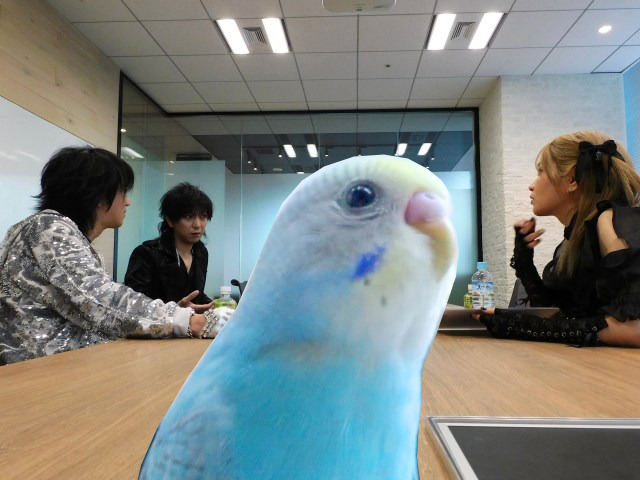
We stay firmly in our lane and talk about budgies instead.
Our writer Ikuna Kamezawa grew up in a rural area with little in the way of entertainment and avenues to vent her teenage angst. One thing she did have, however, was the Japanese goth-glam rock offshoot visual kei which was hugely popular in the ’90s and early 2000s.
Now, having grown up to become a writer in Tokyo, she was thrilled to have been invited to interview one of her favorite bands, Fantastic Circus, at Warner Music Japan to help promote their new greatest hits album.
The only problem is that aside from enjoying listening to it, Ikuna doesn’t really know anything about music. If the conversation went into topics like the concepts of certain songs, she didn’t want to embarrass herself so she made a conscious decision to avoid talking about music as much as possible. Also, she brought along her more musically literate colleague Seiji Nakazawa as backup, on the condition he wouldn’t dress up like Yngwie Malmsteen and audition for them.
▼ Seiji dressed as Yngwie Malmsteen and holding a guitar while “interviewing” Andrew W.K. in 2018
Like many bands, Fantastic Circus has gone through some lineup changes over the years, but currently consists of vocalist Tsutomu Ishizuki with guitarists Kazuya and Shun.
▼ From left to right: Shun, Ishizuki, and Kazuya
This is actually Ikuna’s second time speaking with Fantastic Circus and she knew that Shun was the more talkative member of the group. If things started to get too musical, she figured he’d be a good person to change gears with.
▼ Shun
However, due to a scheduling conflict, only Ishizuki and Kazuya were available on that day. With that escape route suddenly cut off, Ikuna started to low-key panic as she sat down at the interview table.
Ikuna: “Thank you for joining us today. Valentine’s Day was just the other day. How many chocolates did you receive?”
Ishizuki: “Um… Like, 30,000.”
Ikuna: “30…”
Our interviewer was at a loss. Had Ishizuki said 30 million, she’d have been sure he was kidding, but 30,000 was still a somewhat realistic number. She wasn’t sure if she should laugh at his potentially adorable attempt at humor or avoid appearing incredulous at this genuine proof of his fame.
Ikuna: “Um…”
A fresh wave of panic struck Ikuna and she was tempted to ask about the concepts behind their new album just to get out of this situation. She managed to hold strong, however, and professionally kept things unprofessional.
Ikuna: “Um, yeah… So… Please tell me a funny story that happened to you recently.”
Kazuya: “Something that happened… Nothing really. Every day is dark. I don’t do anything except work.”
Ishizuki: “Oh! I got something… There’s this big park near my home, right? I was taking a walk through there the other day and saw a wild budgie.”
Ikuna: “A wild budgie?”
Ishizuki: “The little thing couldn’t fly. It just kept bumping into these concrete steps so I took it to the park office, but they were like, ‘It’s a wild animal so we can’t do anything about it.'”
Ikuna: “Just like that?”
Ishizuki: “Yeah, so I went to a nearby vet but they were like, ‘We don’t treat budgies.'”
Ikuna: “No way!”
Ishizuki: “I was racking my brains about what to do with this thing… And I decided that since it was a wild budgie, the best thing would be to return it to the park, but those steps are no place to be, you know?”
Kazuya: “Heheh…”
Ikuna: “That’s right!”
Ishizuki: “Anyway, if I left it alone there it would die for sure, right? So, I took it to a place with water. Then I saw it starting to eat the grass and thought, ‘Oh, it really is wild,’ and left it there.”
Ikuna: “I wonder what happened to it.”
Ishizuki: “Well, a while later, I was walking in the area again thinking the same thing when… a budgie started flying towards me!”
Ishizuki: “Maybe it was the budgie’s way of saying thanks. Eh, I guess that’s not a very funny story, but it was a nice thing that happened.”
Ikuna: “It was amazing! Totally amazing!”
Seiji: “But you couldn’t really be sure that was the same budgie as the one you saw before.”
Ikuna: “Shut up, Seiji! Ugh…”
Ishizuki: “No, he’s totally right, but that’s just what I think happened.”
Ikuna felt elated to have gotten this exclusive budgie story and realized that this was why she had gotten into writing in the first place. True fans like her would see the worth in it while normies like Seiji would just ask if it was even the same budgie or what wild budgies are doing in Tokyo in the first place.
▼ Not only was Seiji’s outburst disrespectful, but Ikuna had to stop the interview to get a picture of him now that he was a part of it.
Bands like Fantastic Circus who have endured so long truly are a chosen few. She felt an overwhelming urge to help them keep carrying on in a world that has largely moved on from visual kei, so she asked them how to best do that.
Ikuna: “So, how can we help you sell more records?”
Kazuya: “It doesn’t really work that way these days. Basically, we’re not living in an age when visual kei is considered cool anymore.”
Ishizuki: “When we were an indie group in the ’90s, we had many opportunities such as opening for metal bands. Now, social media is the only place to promote our music, you know? People who know us from before might pay attention, but it’s hard to get on the radar of people who don’t know us at all… right? I wonder how everyone else does it.”
Kazuya: “I’m really trying to get the word out about what we’re doing, but it’s tough when someone’s like, ‘Oh, you did that?’ after the fact. There’s nothing sadder than hearing that.”
Ikuna: “What can your existing fans do to help?”
Kazuya: “Maybe, just having people talk about us? Using hashtags on social media is important too. People tend to scoff at those, but they really are crucial.”
Ishizuki: “I mean, we sincerely appreciate everyone who comes out to our live shows, but if everyone could just bring one friend at a time… we could do it in a bigger place. That’d make me happy and everyone else at the show is happy too, right? At least, that’s what I always say… heheh, all the time.”
Ikuna: “Is there anything more effective?”
Kazuya: “More effective? Recently, I’ve seen fans take out ads in train stations for their favorites on their birthdays… Oh, and clearly declaring the band that you want to see is important too.”
Kazuya is referring to events with multiple acts like music festivals when ticket buyers are sometimes asked which of the artists on the lineup they most want to see. Many people tend to just randomly choose one because they really want to see many acts, but the name they give is important to decide which musicians will get booked again in the future.
Kazuya: “If we don’t bring a lot of people to the event, we’ll never be invited to it again. It’s really fundamentally important and super basic when you think about it, heheh. If you’re unsure which artist to choose, just imagine which one you’d be saddest about losing, because that’s the reality of the choice.”
Ikuna: “It makes me want to cry.”
Ishizuki: “Come to think of it, last year, I met a cousin for the first time in decades and he said that he saw me on your website. So, all the work you’re doing is important, haha!”
Kazuya: “Oh, totally! The most effective thing fans can do is empower themselves, isn’t it? Whether it’s influence, financial power, or whatever, get power and use it to support your favorite band, haha!”
As Kazuya said, a lot of this is just common sense, but people do tend to take their favorite artists for granted without seeing how they live or die by their level of awareness. We all have our own level of power to help them, whether it’s working in media, buying a T-shirt, or just clicking a box next to their name when buying a festival ticket, and we should remember to use it when possible.
But this was all getting dangerously close to talking about music, so Ikuna quickly decided to change topics and get back to more frivolous matters. Prior to the interview, she went back to her parents’ home and dug out some old magazine interviews with Fantastic Circus from 1997 and 2001, figuring it’d be fun to ask them the same questions now and see how the answers matched up.
The first one was a personality question comparing themselves to three of Japanese history’s three biggest leaders: Oda Nobunaga who was known to be ruthlessly aggressive yet open-minded, Toyotomi Hideyoshi who preferred negotiation to violence but also wasn’t afraid to be manipulative when necessary, and Tokugawa Ieyasu who was a very patient and pragmatic tactician with a high regard for stability.
1997 Question: Would you compare yourself to Nobunaga, Hideyoshi, or Ieyasu?
Ishizuki: “Um, probably Nobunaga I guess…”
Kazuya: “I don’t really know history. I know the names, but not what each person did…”
1997 Answers
Ishizuki: “None of them.”
Kazuya: “Nobunaga.”
Kazuya: “Yup, I was pretending I knew. I’m an idiot. Haha!”
Ikuna: “Haha!”
Ishizuki: “Haha!”
Kazuya: “Please, just see my stupidity as endearing.”
1997 Question: Who is your favorite type of idol?
Ishizuki: “…Amuro-chan [in a ridiculously low voice]“
1997 Answers
Ishizuki: “I don’t watch TV, so I don’t know.”
Kazuya: “Riona Hazuki.”
Kazuya: “Oh! I loved her!”
Ishizuki: “For what it’s worth, my favorite idol at the time was Yoko Minamino.”
Kazuya: “What? That’s not true. You were into the… ‘Legendary Girl’ girl, weren’t you?”
By this point, Ikuna had no idea what they were talking about but, it wasn’t about making or performing music, so she decided to just let them go.
Ishizuki: “Alisa Mizuki was after Nanno-chan. There was this really good movie. It was called July 7th, Sunny Day. I must have seen it 10 times.”
Kazuya: “You even dragged me to it, haha!”
Ishizuki: “Armageddon too… We both cried during that one.”
Kazuya: “I stopped going to the movies after Armageddon. I managed to hold back my tears and then I went outside and saw an old man crying there. I remember thinking, ‘I don’t want to end up like that!’ It was a movie theater in Nagano.”
Ishizuki: “You know… We were pretty close back then, haha!”
Ikuna: “Come on, you guys seem really close now. It’s heartwarming to see you still together like this!”
Ishizuki: “I guess so. There were some ups and downs, but we’ve come full circle…”
Ikuna: “I’m happy to hear that.”
2001 Question: “What is your motto?”
Ishizuki: “This is the hardest quiz… I have no idea.”
2001 Answer
Ishizuki: “If a dog walks.”
Everyone: “Hahaha!”
“If a dog walks” is a shortened version of the Japanese proverb “If a dog walks, it’ll come across a stick.” It’s similar to the English sayings “a broken clock is right twice a day” or “a thousand monkeys on a thousand typewriters will make Shakespeare,” in that some fortune is bound to come in any situation given enough time, regardless of skill or knowledge.
Kazuya: “Telling a joke and bombing, haha! Even throughout the decades…”
Ishizuki: “Eh, you all laughed now so it’s fine. These magazines are like Pandora’s Box.”
2001 Answer
Kazuya: “Fighting spirit.”
Kazuya: “Ughhhh! I’m still a yankee though! ‘Fighting spirit’ is my motto. That’s me…”
Ishizuki: “Yeah, but you gotta change the last kanji to ‘love.'”
On the whiteboard in the interview room, Ishizuki demonstrates how to change the Japanese word ‘気合’ (‘kiai’, or ‘fighting spirit’) by replacing the second kanji with the one for ‘love’ (‘愛’) which has the same pronounciation. This is a common type of kanji wordplay done by young and rebellious countercultures like yankees and bosozoku.
Kazuya: “I’m pathetic… Embarrassing… My life is embarrassing.”
Ikuna: “You were in your 20s.”
Ishizuki: “Back then we were serious when talking about music, but other than that we just joked around. In fact, we’d have been worried if people took us seriously, haha!”
Ikuna: “Back then, all we had were magazines so I took it seriously.”
Kazuya: “Did you think we really had ‘fighting spirit?'”
Ikuna: “I think I did.”
Ishizuki: “Seriously? So, ‘fighting spirit’ really was our motto…”
Kazuya: “I want to go on an apology tour now. Everyone, I’m sorry…”
Ishizuki: “There used to be a lot of questions back then.”
Kazuya: “Yeah, yeah…”
Ishizuki: “So, we always had to come up with new answers. If we kept saying the same things then, it’d have been boring, wouldn’t it?”
Ikuna: “What was the question you’ve been asked the most?”
Kazuya: “People want to know what I’m interested in. The truth is not that much. I still have trouble answering that question. I got into the habit of just making stuff up a long time ago. At that time, I just hung out with the band and didn’t know much else.”
Ikuna: “You said that you never used to interact with other bands much.”
Kazuya: “We used to go backstage with this and be all fired up so no one would mess with us. We had this “What?” kind of attitude and thought it’d be fine even if it got us into fights. But now… totally different… [stares into the distance]“
Ikuna: “So, you really did have a fighting spirit then.”
We certainly learned a lot about Fantastic Circus and very little about their music! If you’d like to learn more about the kind of music these guys have put together, we can’t think of a better place to start than their newly released compilation Tenseism Best Singles 2001 – 2004.
You can also check out Tsutomu Ishizuki during one of his solo live performances such as the one at Zepp Shinjuku on 10 March. Meanwhile, you can see what Kazuya and Shun are doing in their other band, The Micro Heads 4N’s.
And if you like any of it, tell people about it! Whether it’s talking with friends or posting on social media – preferably with a hashtag – because as we’ve learned today, it can make a world of difference for your favorite artists.
Artist websites: Fantastic Circus, Tsutomu Ishizuki, The Micro Heads 4N’s
Photos ©SoraNews24
● Want to hear about SoraNews24’s latest articles as soon as they’re published? Follow us on Facebook and Twitter!
[ Read in Japanese ]

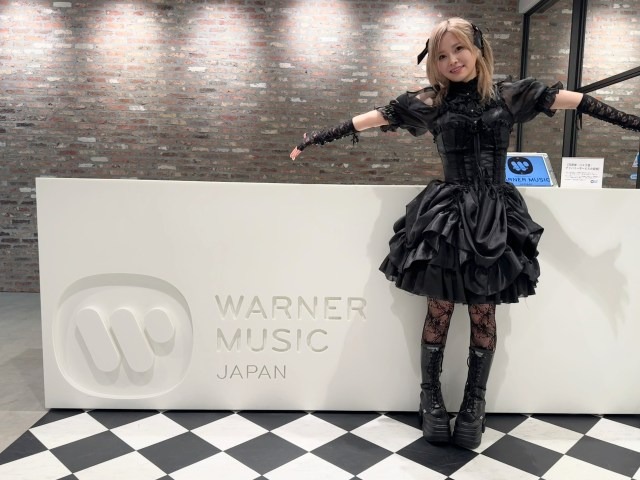
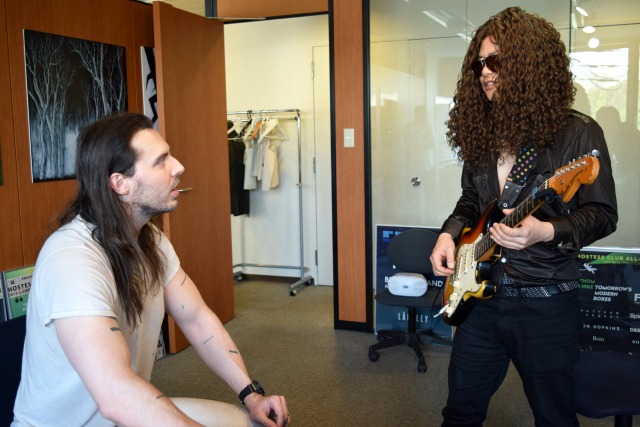
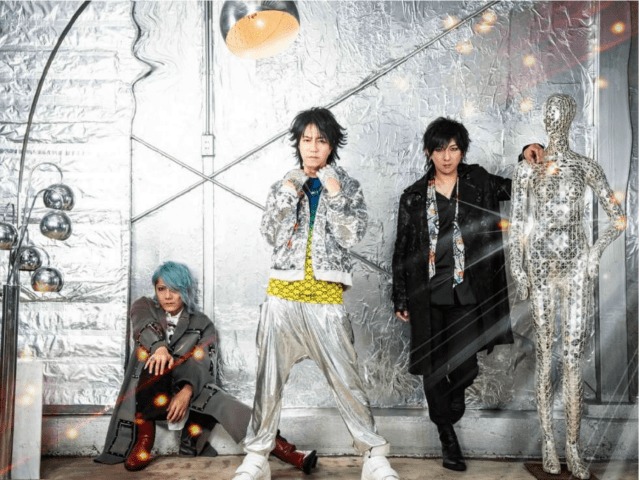
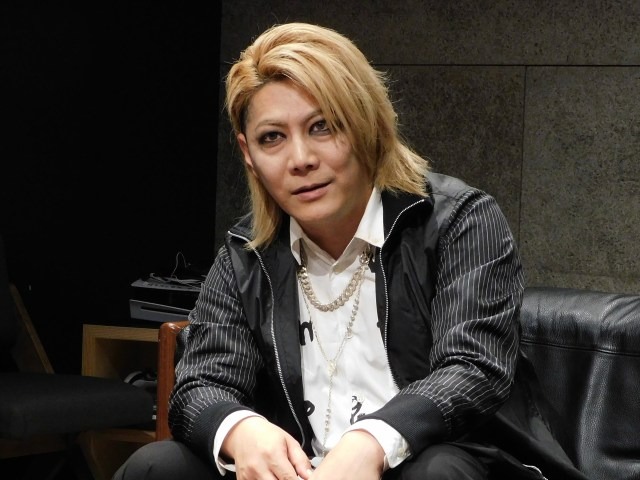
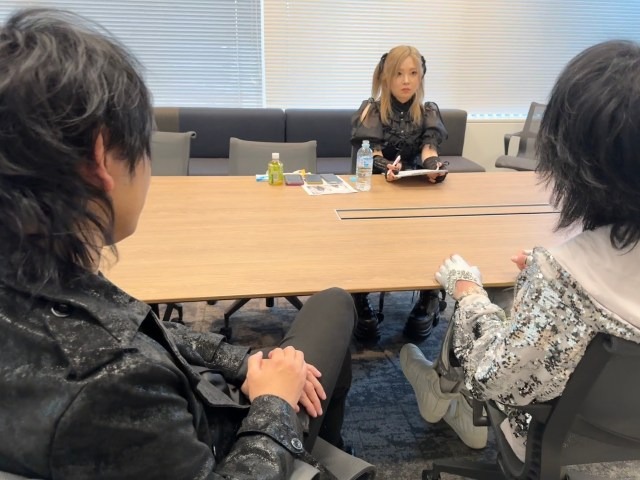
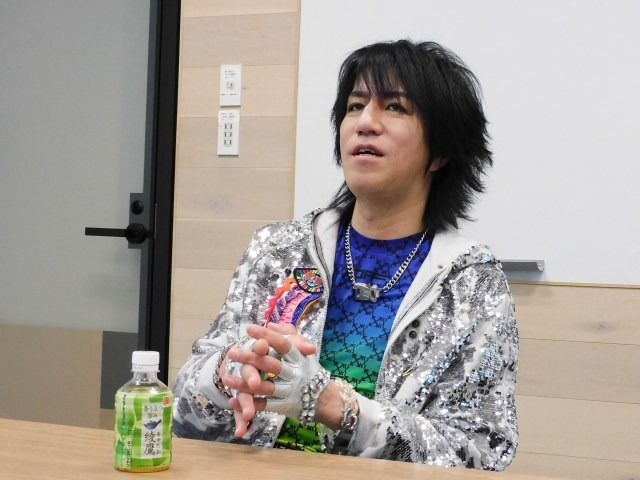
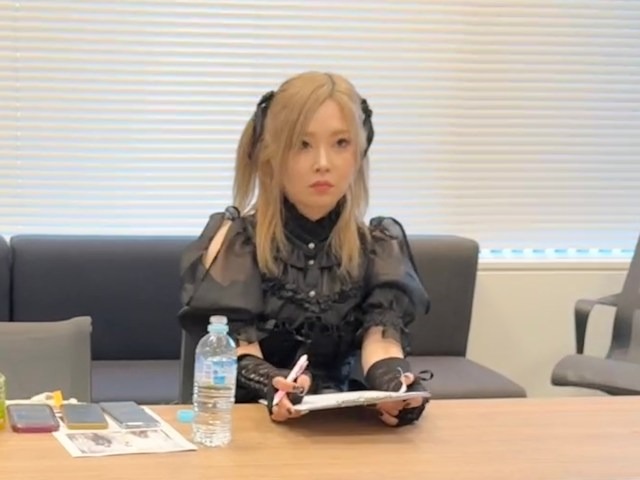
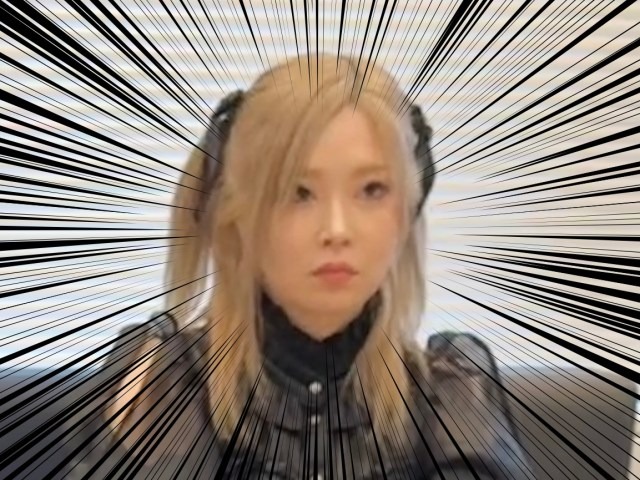
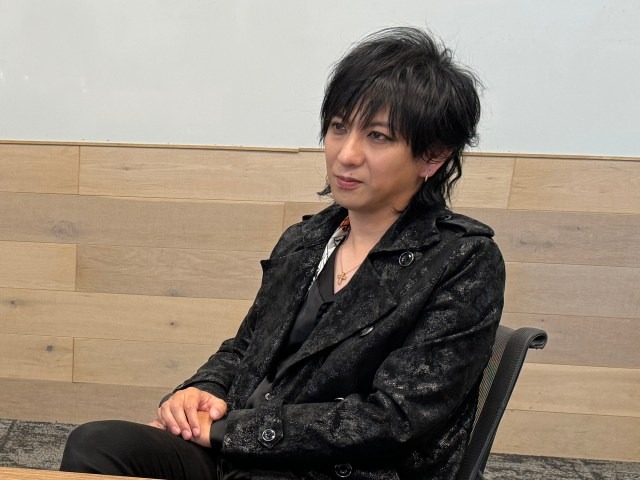
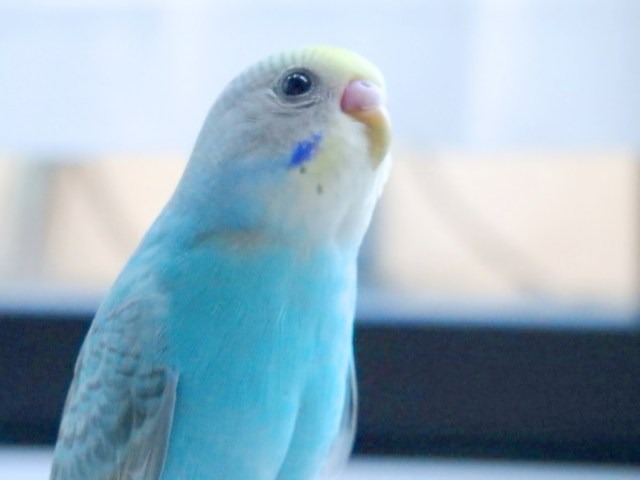
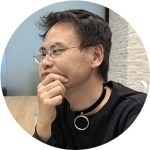
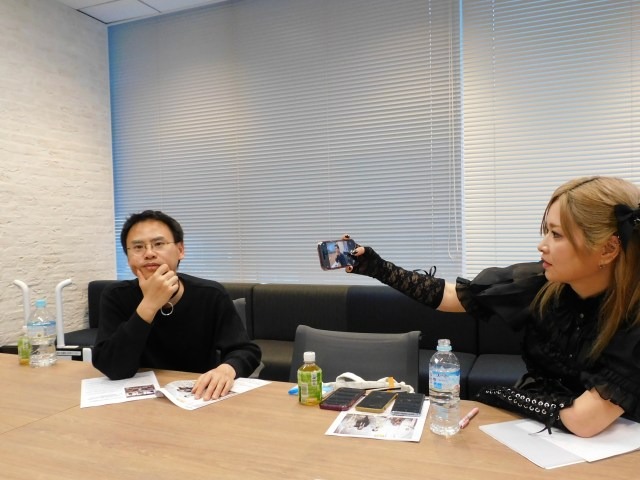
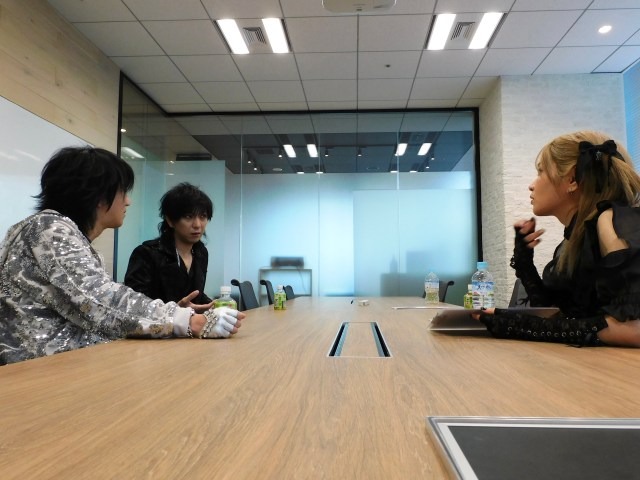
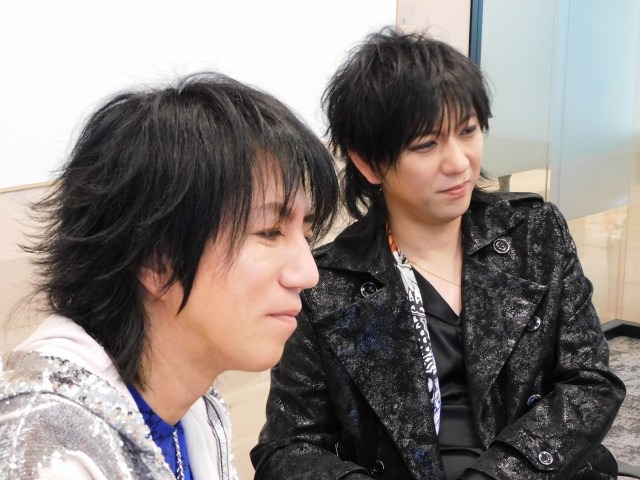

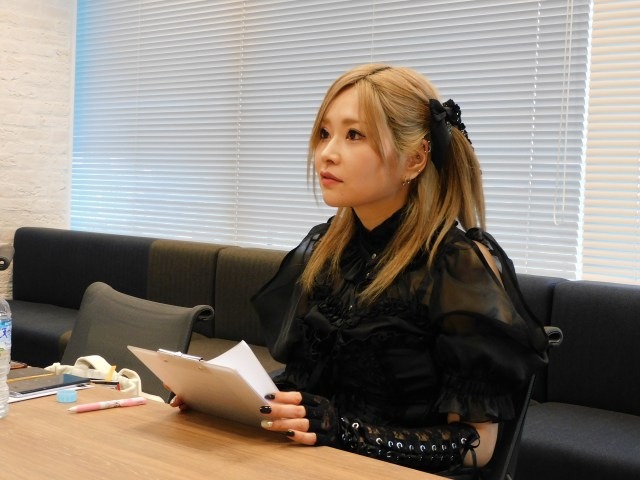
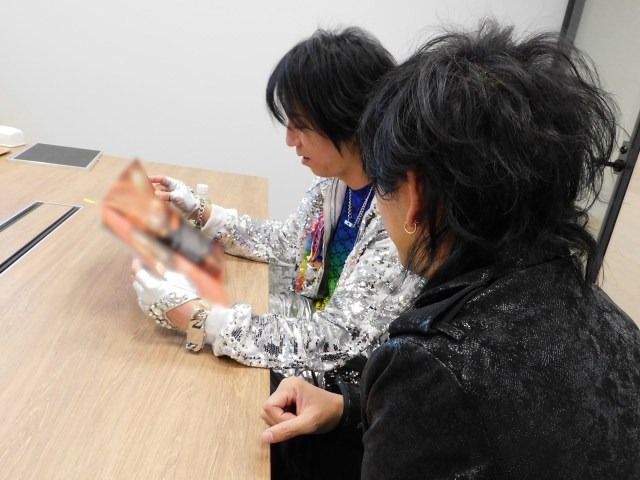
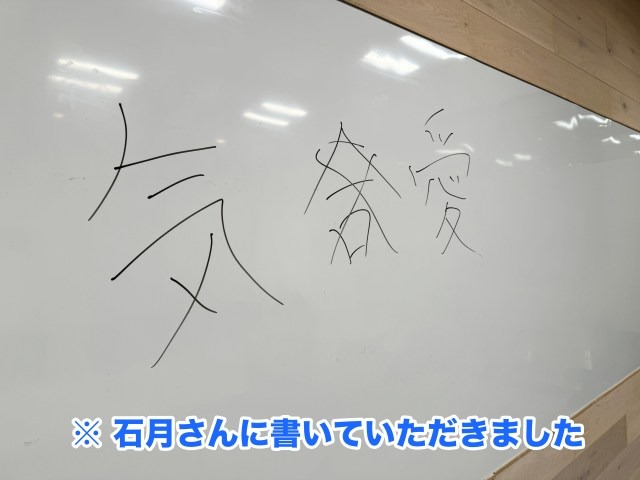
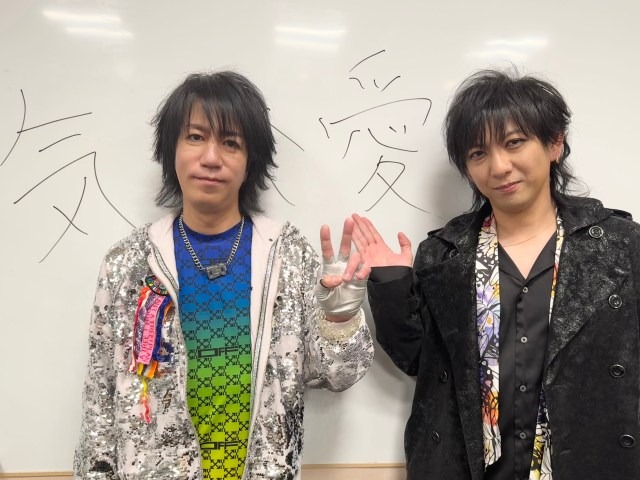
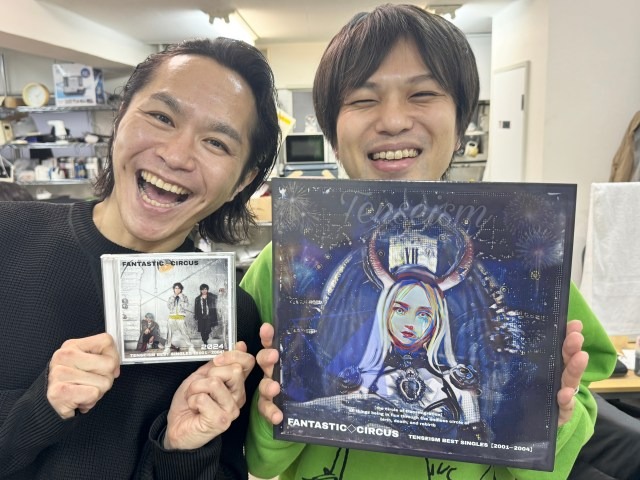
 Our reporter orders food from Uber Eats, falls in love, learns that fate works in mysterious ways
Our reporter orders food from Uber Eats, falls in love, learns that fate works in mysterious ways “Hey Singaporean taxi driver! Take us to the best restaurant in Singapore!”
“Hey Singaporean taxi driver! Take us to the best restaurant in Singapore!” Ramen and girls bar: Where you can talk to women who aren’t dressed like hosts or maids
Ramen and girls bar: Where you can talk to women who aren’t dressed like hosts or maids Do people in Osaka really eat crunchy fried noodles with curry? We ask a local, then try it out
Do people in Osaka really eat crunchy fried noodles with curry? We ask a local, then try it out We try European Cup Noodle Soba flavors to see which ones come out on top 【Taste test】
We try European Cup Noodle Soba flavors to see which ones come out on top 【Taste test】 Japanese city loses residents’ personal data, which was on paper being transported on a windy day
Japanese city loses residents’ personal data, which was on paper being transported on a windy day Foreigner’s request for help in Tokyo makes us sad for the state of society
Foreigner’s request for help in Tokyo makes us sad for the state of society Should you add tartar sauce to Japanese curry rice? CoCo Ichi makes diners an unusual offer
Should you add tartar sauce to Japanese curry rice? CoCo Ichi makes diners an unusual offer Ghibli Park now selling “Grilled Frogs” from food cart in Valley of Witches
Ghibli Park now selling “Grilled Frogs” from food cart in Valley of Witches Seaside scenery, history, and so many desserts on Yokohama’s Akai Kutsu【Japan Loop Buses】
Seaside scenery, history, and so many desserts on Yokohama’s Akai Kutsu【Japan Loop Buses】 Historical figures get manga makeovers from artists of Spy x Family, My Hero Academia and more
Historical figures get manga makeovers from artists of Spy x Family, My Hero Academia and more Mt. Koya planning to instate visitor’s tax to cope with huge tourist numbers
Mt. Koya planning to instate visitor’s tax to cope with huge tourist numbers Beautiful Ghibli sealing wax kits let you create accessories and elegant letter decorations【Pics】
Beautiful Ghibli sealing wax kits let you create accessories and elegant letter decorations【Pics】 Suntory x Super Mario collaboration creates a clever way to transform into Mario【Videos】
Suntory x Super Mario collaboration creates a clever way to transform into Mario【Videos】 Shinjuku izakaya’s all-you-can-eat-and-drink plan is one of Tokyo’s best secret cheap eats
Shinjuku izakaya’s all-you-can-eat-and-drink plan is one of Tokyo’s best secret cheap eats McDonald’s new Happy Meals offer up cute and practical Sanrio lifestyle goods
McDonald’s new Happy Meals offer up cute and practical Sanrio lifestyle goods Japanese ramen restaurants under pressure from new yen banknotes
Japanese ramen restaurants under pressure from new yen banknotes French Fries Bread in Tokyo’s Shibuya becomes a hit on social media
French Fries Bread in Tokyo’s Shibuya becomes a hit on social media Studio Ghibli releases new action figures featuring Nausicaä of the Valley of the Wind characters
Studio Ghibli releases new action figures featuring Nausicaä of the Valley of the Wind characters New private rooms on Tokaido Shinkansen change the way we travel from Tokyo to Kyoto
New private rooms on Tokaido Shinkansen change the way we travel from Tokyo to Kyoto Red light district sushi restaurant in Tokyo shows us just how wrong we were about it
Red light district sushi restaurant in Tokyo shows us just how wrong we were about it Tokyo Tsukiji fish market site to be redeveloped with 50,000-seat stadium, hotel, shopping center
Tokyo Tsukiji fish market site to be redeveloped with 50,000-seat stadium, hotel, shopping center All-you-can-drink Starbucks and amazing views part of Tokyo’s new 170 meter-high sky lounge
All-you-can-drink Starbucks and amazing views part of Tokyo’s new 170 meter-high sky lounge Studio Ghibli releases Kiki’s Delivery Service chocolate cake pouches in Japan
Studio Ghibli releases Kiki’s Delivery Service chocolate cake pouches in Japan New definition of “Japanese whiskey” goes into effect to prevent fakes from fooling overseas buyers
New definition of “Japanese whiskey” goes into effect to prevent fakes from fooling overseas buyers Our Japanese reporter visits Costco in the U.S., finds super American and very Japanese things
Our Japanese reporter visits Costco in the U.S., finds super American and very Japanese things Studio Ghibli unveils Mother’s Day gift set that captures the love in My Neighbour Totoro
Studio Ghibli unveils Mother’s Day gift set that captures the love in My Neighbour Totoro More foreign tourists than ever before in history visited Japan last month
More foreign tourists than ever before in history visited Japan last month New Pokémon cakes let you eat your way through Pikachu and all the Eevee evolutions
New Pokémon cakes let you eat your way through Pikachu and all the Eevee evolutions Sales of Japan’s most convenient train ticket/shopping payment cards suspended indefinitely
Sales of Japan’s most convenient train ticket/shopping payment cards suspended indefinitely Sold-out Studio Ghibli desktop humidifiers are back so Totoro can help you through the dry season
Sold-out Studio Ghibli desktop humidifiers are back so Totoro can help you through the dry season Japanese government to make first change to romanization spelling rules since the 1950s
Japanese government to make first change to romanization spelling rules since the 1950s Ghibli founders Toshio Suzuki and Hayao Miyazaki contribute to Japanese whisky Totoro label design
Ghibli founders Toshio Suzuki and Hayao Miyazaki contribute to Japanese whisky Totoro label design Doraemon found buried at sea as scene from 1993 anime becomes real life【Photos】
Doraemon found buried at sea as scene from 1993 anime becomes real life【Photos】 Tokyo’s most famous Starbucks is closed
Tokyo’s most famous Starbucks is closed One Piece characters’ nationalities revealed, but fans have mixed opinions
One Piece characters’ nationalities revealed, but fans have mixed opinions We asked a Uniqlo employee what four things we should buy and their suggestions didn’t disappoint
We asked a Uniqlo employee what four things we should buy and their suggestions didn’t disappoint Princesses, fruits, and blacksmiths: Study reveals the 30 most unusual family names in Japan
Princesses, fruits, and blacksmiths: Study reveals the 30 most unusual family names in Japan New Year lucky bag from makeup giant Shu Uemura may disappoint makeup buffs but thrill otaku
New Year lucky bag from makeup giant Shu Uemura may disappoint makeup buffs but thrill otaku We get our hands on a coveted Yodobashi lucky bag, this time the beauty and health gadget box
We get our hands on a coveted Yodobashi lucky bag, this time the beauty and health gadget box We visit a restaurant called ‘Otaku’ in France, eat some otaku sushi
We visit a restaurant called ‘Otaku’ in France, eat some otaku sushi Hey, Thai tuk-tuk driver! Take us to the best Thai restaurant in this part of Bangkok!
Hey, Thai tuk-tuk driver! Take us to the best Thai restaurant in this part of Bangkok! This lucky bag of anime models is also a decades-long history lesson for our mecha newbie
This lucky bag of anime models is also a decades-long history lesson for our mecha newbie Travis Japan members compete with the best dancers in Japan at Red Bull’s national dance finals
Travis Japan members compete with the best dancers in Japan at Red Bull’s national dance finals We joined the 10,000 otaku who recently congregated in Madrid for Japan Weekend
We joined the 10,000 otaku who recently congregated in Madrid for Japan Weekend The McDonald’s Hokkaido Salmon Burger is a sell-out hit…outside of Japan【Taste test】
The McDonald’s Hokkaido Salmon Burger is a sell-out hit…outside of Japan【Taste test】 How can you maximize the calories you burn singing karaoke?【Experiment】
How can you maximize the calories you burn singing karaoke?【Experiment】 Our reporters try a yakiniku sauce called “Even Women Garlic” to figure out what that means
Our reporters try a yakiniku sauce called “Even Women Garlic” to figure out what that means Hey, Croatian taxi driver! Take us to the restaurant with the best štrukli in Zagreb
Hey, Croatian taxi driver! Take us to the restaurant with the best štrukli in Zagreb What’s it like to watch a sumo tournament in Tokyo during the pandemic?
What’s it like to watch a sumo tournament in Tokyo during the pandemic? We stumbled upon “Pudding Street” in Hanoi, so of course we had to investigate
We stumbled upon “Pudding Street” in Hanoi, so of course we had to investigate McDonald’s breakfast menu in Hong Kong is like nothing we’ve ever seen in Japan
McDonald’s breakfast menu in Hong Kong is like nothing we’ve ever seen in Japan Have you tried Tokushima ramen? No? You should (says our obsessed Japanese-language reporter)
Have you tried Tokushima ramen? No? You should (says our obsessed Japanese-language reporter)
Leave a Reply